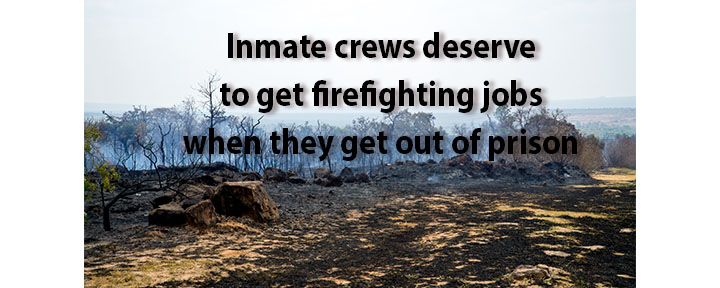
One of my students is exploring ways to stop wildfires from destroying millions of acres of forests in California. He was evacuated from his home and felt helpless because he couldn’t do anything to defend his neighborhood from the oncoming lightning-strike fires. He says that we need to recruit volunteers to create fire breaks in distant areas to stop future wildfires.
Then we learned that the fire department recruits and trains inmates to do the clearing, limbing, and other crucial preventative work both before the fire season and during actual mitigation of wildfires. That seems like a great way to utilize inmates by giving them valuable skills and using their manpower to do the heavy lifting that official firefighters often don’t have enough staff to do. To become part of an inmate crew, they must have non-violent behavior and conformance to rules while they are in prison and their original crimes must not include sex offenses, arson, or history of escape. These inmates earn around $2.50 an hour while they worked on inmate crews. It seems like a win-win situation for everyone.
One would think that after an inmate (who was trained to do firefighter tasks) does his time in prison, he would be able to apply for a job as a firefighter when he is released. That would make sense and it would be the best form of rehabilitation. But inmates can’t become firefighters after they’ve done their time because they don’t qualify to get their Emergency Medical Technician certificate – a requirement to become a California firefighter. Bureaucracy!
Governor Newsom has until Sept 30th to sign AB2147 that will expunge criminal records from formerly incarcerated people who have been trained at state fire camps while they were in prison. I hope he signs this so we can increase the quantity of firefighters here in California and to give these people a second chance at life.
